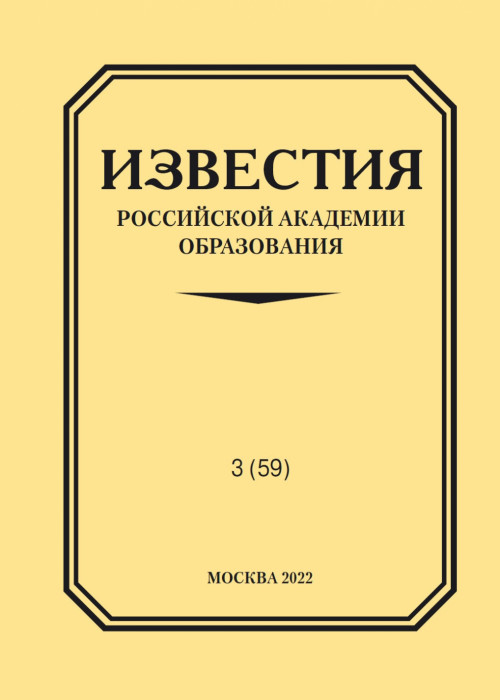Library
1. 26. Weisberg R. W. Toward an integrated theory of insight in problem solving / R. W. Weisberg // Thinking and Reasoning. — 2015. — Vol. 21, № 1. — P. 5–39.
2. 25. Unsworth N. On the division of short-term and working memory: an examination of simple and complex span and their relation to higher order abilities / N. Unsworth, R. W. Engle // Psychological bulletin. — 2007. — Vol. 133, № 6. — P. 1038–1066.
3. 24. Toplak M. E. Assessing miserly information processing : An expansion of the Cognitive Reflection Test / M. E. Toplak, R. F. West, K. E. Stanovich // Thinking and Reasoning. — 2014. — Vol. 20, № 2. — P. 147–168.
4. 23. Thomas M. S. Connectionist models of cognition [Electronic resource] / M. S. Thomas, J.L.McClelland. — 2008. — Mode of access: <a href="https://www.researchgate.net/publication/253387878_Connectionist_models_of_cognition" target="_blank">https://www.researchgate.net/publication/253387878_Connectionist_models_of_cognition</a> (date of the application: 17.08.2022).
5. 22. The structure of the cerebral cortex across adult life: age-related patterns of surface area, thickness, and gyrification / L. J. Hogstrom [et al.] // Cerebral cortex. — 2013. — Vol. 23, № 11. — P. 2521–2530.
6. 21. Sun R. Incubation, insight, and creative problem solving: a unified theory and a connectionist model / R. Sun // Psychological Review. — 2010. — Vol. 117, № 3. — P. 994–1024.
7. 20. Stoianov I. P. A connectionist model of simple mental arithmetic / I. P. Stoianov, M. Zorzi, C. Umilta. — Routledge, 2019. — P. 313–318.
8. 19. Oberauer K. An interference model of visual working memory / K. Oberauer, H. Y. Lin // Psychological review. — 2017. — Vol. 124, № 1. — P. 21–59.
9. 18. Nadel L. Update on memory systems and processes / L. Nadel, O. Hardt // Neuropsychopharmacology. — 2011. — Vol. 36, № 1. — P. 251–273.
10. 17. Modeling working memory : An interference model of complex span / K. Oberauer [et al.] // Psychonomic bulletin and review. — 2012. — Vol. 19, № 5. — P. 779–819.
11. 16. Ku K. Y. Metacognitive strategies that enhance critical thinking / K. Y. Ku, I. T. Ho // Metacognition and learning. — 2010. — Vol. 5, № 3. — P. 251–267.
12. 15. Kaufman J. C. Contemporary theories of intelligence / J. C. Kaufman, S. B. Kaufman, J. A. Plucker // The Oxford handbook of cognitive psychology / ed. by D. Reisberg. — Oxford, 2013. — P. 811–822.
13. 14. Hester R. L. Effect of age on forward and backward span tasks / R. L. Hester, G. J. Kinsella, B. E. N. Ong // J. of the International Neuropsychological Society : JINS. — 2004. — Vol. 10, № 4. — P. 475–481.
14. 13. GrÉGoire J. Effect of age on forward and backward digit spans / J. GrÉGoire, M. Van Der Linden // Aging, neuropsychology, and cognition. — 1997. — Vol. 4, № 2. — P. 140–149.
15. 12. Frey A. Perceptual span, visual span, and visual attention span : Three potential ways to quantify limits on visual processing during reading / A. Frey, M. L. Bosse // Visual Cognition. — 2018. — Vol. 26, № 6. — P. 412–429.
16. 11. French R. M. The computational modeling of analogy-making / R. M. French // Trends in cognitive Sciences. — 2002. — Vol. 6, № 5. — P. 200–205.
17. 10. Frederick S. Cognitive reflection and decision making / S. Frederick // J. of Economic perspectives. — 2005. — Vol. 19, № 4. — P. 25–42.
18. 9. Deary I. J. Reaction time, age, and cognitive ability : Longitudinal findings from age 16 to 63 years in representative population samples / I. J. Deary, G. Der // Aging, Neuropsychology, and Сognition. — 2005. — Vol. 12, № 2. — P. 187–215.
19. 8. Cowan N. What are the differences between long-term, short-term, and working memory? / N. Cowan // Progress in brain research. — 2008. — Vol. 169. — P. 323–338.
20. 7. Conway A. R. Working memory and intelligence : An overview / A. R. Conway, B. N. Macnamara, P. M. E. de Abreu // Working Memory : Connected intelligence / ed. by T. P. Alloway, R. G. Alloway. — N. Y., 2013. — P. 13–36.
21. 6. Contemporary theories of intelligence [Electronic resource] / S. Hélie [et al.] // The Oxford handbook of cognitive psychology / ed. by D. Reisberg. — Oxford, 2013. — P. 811–822. — Mode of access : <a href="https://www.semanticscholar.org/paper/The-Oxford-Handb" target="_blank">https://www.semanticscholar.org/paper/The-Oxford-Handb</a>
22. 5. Cognitive network science : A review of research on cognition through the lens of network representations, processes, and dynamics / C. S. Siew [et al.] // Complexity. — 2019. — Vol. 2019. — P. 1–24.
23. 4. Age-related changes in the thickness of cortical zones in humans / S. M. McGinnis [et al.] // Brain topography. — 2011. — Vol. 24. — P. 279. — <a href="https://doi.org/10.1007/s10548-011-0198-6" target="_blank">https://doi.org/10.1007/s10548-011-0198-6</a>
24. 3. Aben B. About the distinction between working memory and short-term memory / B. Aben, S. Stapert, A. Blokland // Frontiers in psychology. — 2012. — Vol. 3. — P. 301. — doi: 10.3389/ fpsyg.2012.00301
25. 2. Родина О. Н. Апробация русскоязычных версий теста когнитивной рефлексии / О. Н. Родина, П. Н. Прудков // Вопр. психологии. — 2019. — № 4. — С. 155–162.
26. 1. Айзенк Г. Ю. Проверьте свои способности / Г. Ю. Айзенк ; пер. с англ. А. Н. Лука, И. С. Хорола. — М. : Мир, 1972.
